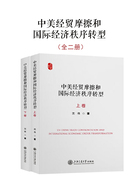
四、外国对中国竞争中性偏离实践的批评
(一)美国、日本和欧洲联盟三方贸易部长会议的联合声明
2018年9月25日,美国、日本和欧盟三方贸易部长纽约会议发表了多个联合声明,包括关于第三国不以市场为导向的政策和做法的关切声明、关于工业补贴和国有企业的声明、关于对第三国强制技术转让政策和做法的关切声明、关于世贸组织改革讨论的声明等。
在关于工业补贴和国有企业的声明中,三国强调了确保公平竞争的重要性,表示:“在加强工业补贴和国有企业规则的基础上,包括如何制定有效的规则来解决国有企业扭曲市场的行为,面对特别有害的补贴做法,例如国有银行借出不符合公司信用的贷款,包括由于政府的隐性担保;政府或政府控制的投资基金非商业性质的股权投资;非商业性的债转股;优惠的投入价格,包括双重定价;对没有可靠重组计划的陷入困境的企业提供补贴;导致或维持产能过剩的补贴。”
美国、日本和欧盟三方特别提出和讨论了“工业补贴和国有企业对竞争的扭曲”问题,表明西方发达国家正准备将“国有企业”问题作为未来贸易规则的核心议题在全球推广。
(二)B20提交政策建议文件
2018年10月5日在阿根廷布宜诺斯艾利斯落幕的B20峰会(二十国集团工商峰会),用专门报告讨论国企对市场竞争的扭曲和不公平问题。
2018年《B20贸易与投资报告》(以下简称《报告》) 开篇就提到目前在全球规模最大的100家企业中,22家是国家控制的,而世界500强企业中也有1/4是国有企业。《报告》称,在国有企业和私营企业的竞争中,政府可能会创造不公平的市场环境以确保国企获胜。国企并不一定谋求利润和长期价值的最大化,国家层面的激励因素可能在全球市场中产生限制竞争的影响,损害其他国家的利益。特别是考虑到国有企业在一些国际供应链的上游或下游扮演着关键角色,竞争扭曲对贸易伙伴和竞争者的负面损害尤为显著。
开篇就提到目前在全球规模最大的100家企业中,22家是国家控制的,而世界500强企业中也有1/4是国有企业。《报告》称,在国有企业和私营企业的竞争中,政府可能会创造不公平的市场环境以确保国企获胜。国企并不一定谋求利润和长期价值的最大化,国家层面的激励因素可能在全球市场中产生限制竞争的影响,损害其他国家的利益。特别是考虑到国有企业在一些国际供应链的上游或下游扮演着关键角色,竞争扭曲对贸易伙伴和竞争者的负面损害尤为显著。
(三)中美贸易战背景下的竞争中性原则
美国在中美贸易战中联手其他国家质疑我国技术转让、产业补贴和国企地位等政策和体制特点具有市场扭曲效果,推动这些争议问题转变为国际化与多边化议题。2018年5月和9月,美欧日等国家的贸易部长分别在巴黎和纽约发表共同声明,全面背书美对华“301调查”报告对中国技术创新政策质疑要点,并试图界定“商业与行业的市场条件”概念在诸边场合重新复活非市场经济地位议题。2018年7月25日发表的《美欧就容克主席访问白宫发表的联合声明》也包括类似内容,例如提到,有些国家的经济经营者越来越多地受益于有针对性的、严重扭曲市场的政府支持措施,这些政府支持措施通常通过国有企业来提供。虽然在某些情况下,提供工业补贴可以构成一种合法的政策工具,但它们的使用也可能给全球贸易带来重大风险,因为它们可能扰乱生产过程、影响企业业绩,并扭曲市场竞争。 2018年10月初达成的《美墨加协议》(USMCA)强化了NAFTA有关竞争政策、国企和垄断等规则条款内容,有关“非商业援助”规范要求以及引入“竞争中性”方针具有针对中国的含义。
2018年10月初达成的《美墨加协议》(USMCA)强化了NAFTA有关竞争政策、国企和垄断等规则条款内容,有关“非商业援助”规范要求以及引入“竞争中性”方针具有针对中国的含义。
另外,美国要求中国改变当前补贴新兴产业的政策,特别是要削弱甚至迫使中国放弃《中国制造2025》计划,美国担心《中国制造2025》等产业政策对西方产业造成冲击。以中国华为公司为例,华为在网络设备制造方面已成为世界领先者,正在努力主导被称为“下一代无线技术”的5G网络,其领先的技术和优惠的价格在市场上很难找到替代,被美国政府视作中国的“特洛伊木马”。美国意图削弱其日益增长的销量和影响力。由于美国政府的施压,威瑞森无线通信公司和美国电话电报移动通信公司中止了与华为的合作。
美国认为,在中国现行体制下,中央设定目标后,地方政府和国有企业积极跟进,纷纷出台本地和本单位配套方案,结果导致产能过剩,产能过剩又造成出口倾销,导致全球价格扭曲与国际贸易失衡。政府主导和支持的国有企业治理结构有利于落实和强化产业政策,上下级的行政关系使得以命令或指令为基础的执行机制更为有效。但是,这种执行机制有可能扭曲货币、价格、工资、投资、原材料投入、分配等市场要素,致使市场经济运行的非市场经济化。
(1) TPP,Article 17.6.1:No Party shall cause adverse effects to the interests of another Party through the use of non-commercial assistance that it provides,either directly or indirectly,to any of its state-owned enterprises with respect to:(a)the production and sale of a good by the state-owned enterprise;(b)the supply of a service by the state-owned enterprise from the territory of the Party into the territory of another Party;or(c)the supply of a service in the territory of another Party through an enterprise that is a covered investment in the territory of that other Party or any other Party.
Article 17.6.2:Each Party shall ensure that its state enterprises and state-owned enterprises do not cause adverse effects to the interests of another Party through the use of noncommercial assistance that the state enterprise or state-owned enterprise provides to any of its state-owned enterprises with respect to:(a)the production and sale of a good by the state-owned enterprise...
Article 17.6.3:No Party shall cause injury to a domestic industry19 of another Party through the use of non-commercial assistance that it provides,either directly or indirectly,to any of its state-owned enterprises that is a covered investment in the territory of that other Party in circumstances where:(a)the non-commercial assistance is provided with respect to the production and sale of a good by the state-owned enterprise in the territory of the other Party;and (b)a like good is produced and sold in the territory of the other Party by the domestic industry of that other Party.
(2) Agreement on Subsidies and Countervailing Measures,Artical 2.1:In order to determine whether a subsidy,as defined in paragraph 1 of Article 1,is specific to an enterprise or industry or group of enterprises or industries (referred to in this Agreement as “certain enterprises”)within the jurisdiction of the granting authority,the following principles shall apply:
(a)Where the granting authority,or the legislation pursuant to which the granting authority operates,explicitly limits access to a subsidy to certain enterprises,such subsidy shall be specific.
(b)Where the granting authority,or the legislation pursuant to which the granting authority operates,establishes objective criteria or conditions governing the eligibility for,and the amount of,a subsidy,specificity shall not exist,provided that the eligibility is automatic and that such criteria and conditions are strictly adhered to.The criteria or conditions must be clearly spelled out in law,regulation,or other official document,so as to be capable of verification.
(c)If,notwithstanding any appearance of non-specificity resulting from the application of the principles laid down in subparagraphs (a)and (b),there are reasons to believe that the subsidy may in fact be specific,other factors may be considered.Such factors are:use of a subsidy programme by a limited number of certain enterprises,predominant use by certain enterprises,the granting of disproportionately large amounts of subsidy to certain enterprises,and the manner in which discretion has been exercised by the granting authority in the decision to grant a subsidy.In applying this subparagraph,account shall be taken of the extent of diversification of economic activities within the jurisdiction of the granting authority,as well as of the length of time during which the subsidy programme has been in operation.
(3) Treaty on the Functioning of the European Union,Article 106(ex Article 86 TEC):
1.In the case of public undertakings and undertakings to which Member States grant special or exclusive rights,Member States shall neither enact nor maintain in force any measure contrary to the rules contained in the Treaties,in particular to those rules provided for in Article 18 and Articles 101 to 109.
2.Undertakings entrusted with the operation of services of general economic interest or having the character of a revenue-producing monopoly shall be subject to the rules contained in the Treaties,in particular to the rules on competition,in so far as the application of such rules does not obstruct the performance,in law or in fact,of the particular tasks assigned to them.The development of trade must not be affected to such an extent as would be contrary to the interests of the Union.
3.The Commission shall ensure the application of the provisions of this Article and shall,where necessary,address appropriate directives or decisions to Member States.